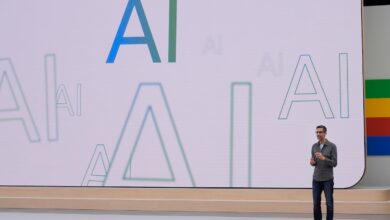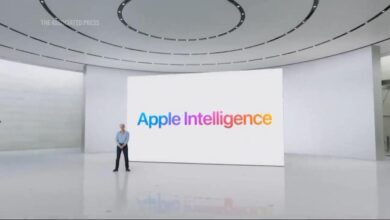Artificial Intelligence, Work, and the Lack of Meaning | by André Gualtieri | May, 2024

In a 2017 article published in The Guardian, which resonated widely, the well-known Israeli historian Yuval Harari states: “Most of the jobs that exist today might disappear within decades. As artificial intelligence outperforms humans in more and more tasks, it will replace humans in more and more jobs.”
Harari adds: “The crucial problem is not creating new jobs. The crucial problem is the creation of new jobs that humans perform better than algorithms.”
The article brings up interesting points. Indeed, there are many speculations about the things he mentions, and there is a risk that they could lead us in this dystopian direction.
However, important considerations need to be made about Harari’s statements. That is what I intend to do in this article.
Contrary to what Harari states (“The crucial problem is the creation of new jobs that humans perform better than algorithms”), there is a whole field of activities where we humans do things better than algorithms.
Harari’s warning is appropriate for certain types of work that humans perform, but we need to analyze the topic more closely, as it presents several important facets not considered in the article.
Enrique Dans argues that the starting point for the process of replacing human labor with machines lies in the so-called 4D jobs, an expression referring to jobs that are dangerous, dull, dirty, or demeaning. These are jobs such as supermarket cashier, delivery driver, security guard, janitor, agricultural worker, and construction worker. These types of jobs would be the first to be replaced.
However, the recent explosion of generative AI systems like ChatGPT has made the threat of replacing jobs considered intellectual, such as journalists or lawyers, more palpable, and this could happen even before the 4D jobs.
Let’s see how the future unfolds. But to reflect on these matters, it is interesting to mention Kai-Fu Lee’s explanation of the risk of human labor being replaced by AI.
First, physical work. The less social and more repetitive and structured this work is, the greater its chances of being replaced by AI. These are jobs such as fast-food preparer, production line inspector, dishwasher, cashier, and truck driver.
Now cognitive work. It follows similar rules. The less social and optimization-based this work is, the greater its chances of being replaced by AI. These are jobs such as radiologist, accountant, and insurance analyst.
One thing is clear from Lee’s analysis. The more a job depends on social skills and creativity, the lower its chances of being replaced by machines. The reason is simple: these are precisely the weaknesses of AI; it lacks empathy, sentiment, and the ability to create new things. These are human characteristics.
What would be, for example, the characteristics of a human text that would make it invulnerable to ChatGPT? Is there such a thing? Or could any human text also be produced by a machine?
Graebert’s evaluation points to two factors that, in my opinion, apply to the different types of texts created by humans:
- New information;
- Valuable content because of a subjective perspective.
AI systems are trained on models and then produce insights based on those models. They can receive an idea or a question and formulate an answer based on millions of data points. However, this does not mean they produce genuinely new information. It is humans who bring novelty to the world.
Notice that ChatGPT is tied to past data. Texts with new information, new insights, new theories, and innovative views on certain subjects will likely be secure in a world with ChatGPT.
This brings us to the second factor. If a text brings a personal experience that the audience finds valuable because of its perspective, ChatGPT is not a threat. AI has no personality; only humans possess it. And it is precisely this personality that results in a way of thinking and writing that is unique.
Another important point. AI cannot eliminate human labor because it needs “clean” data, which requires human work.
Daugherty and Wilson show that there is a whole set of hybrid activities where humans complement machines and vice versa, so human activities remain necessary even in a highly automated world.
Functions requiring leadership, ethics, judgment, and creativity remain human. Moreover, machines need humans to train them, explain their decisions, and adopt measures that ensure the model’s sustainability over time. For this reason, many people claim that while jobs are lost, others are created.
Even taking these considerations into account, there is a problem that Harari rightly points out:
“Many new professions will likely appear: virtual world designers, for example. But these professions will likely require more creativity and flexibility, and it is unclear if unemployed 40-year-old taxi drivers or insurance agents can reinvent themselves as virtual world designers.”
This brings the risk of the emergence of a class of unemployed people “who are not just unemployed, but unemployable.” It would not be a temporary situation but people who are permanently unfit for work.
How to deal with such a problem? Many authors, such as Richard Susskind, have advocated for the so-called universal basic income. Harari refers to this solution:
“The same technology that makes humans useless can also make it viable to feed and support unemployed masses through some basic universal income scheme.”
But even if universal basic income is ever implemented, it will be incapable of solving the problem of lack of meaning in life.
As Viktor Frankl says:
“More and more people have the means to live, but no meaning to live for.”
Even if we conclude that AI will cause mass unemployment, eliminating an important factor from which people currently derive meaning in their lives (work), a monthly income will not be able to recover that meaning. The answer to the question of meaning is much more complex.
Harari even tries to reflect on a way to give meaning to the masses of people that technology would leave without occupation.
“The real problem will then be to keep the masses occupied and content. People must engage in purposeful activities, or they go crazy. So what will the unemployed class do all day?”
He suggests that the question might be addressed through computer games.
“Economically redundant people may spend increasing amounts of time inside 3D virtual reality worlds, which would provide them with much more excitement and emotional engagement than the external ‘real world.”
The problem of meaning is one of the greatest challenges our time poses to us. Yes, it has to do with activities, and therefore, the lack of work makes the problem bigger. But the issue is far from being limited to work.
Harari himself mentions Orthodox Jews who spend their entire lives without working, only dealing with worship issues, and they do not usually face the problem of meaning in their lives.
The solution proposed by universal basic income, for example, only addresses the material aspect of the problem. But it has been shown to us by people like Viktor Frankl and Alexander Solzhenitsyn that even in conditions completely devoid of basic material needs, people continue to find meaning in their lives from other elements. In fact, their survival in such situations depends on it.
Meaning, therefore, is also a cultural and spiritual problem inherent to bio-psycho-social beings like humans. A single measure, such as universal basic income or putting unemployed people to spend their days in metaverses, will hardly be able to address the problem of the lack of meaning that arises for the individual in the face of the modern technological world.



